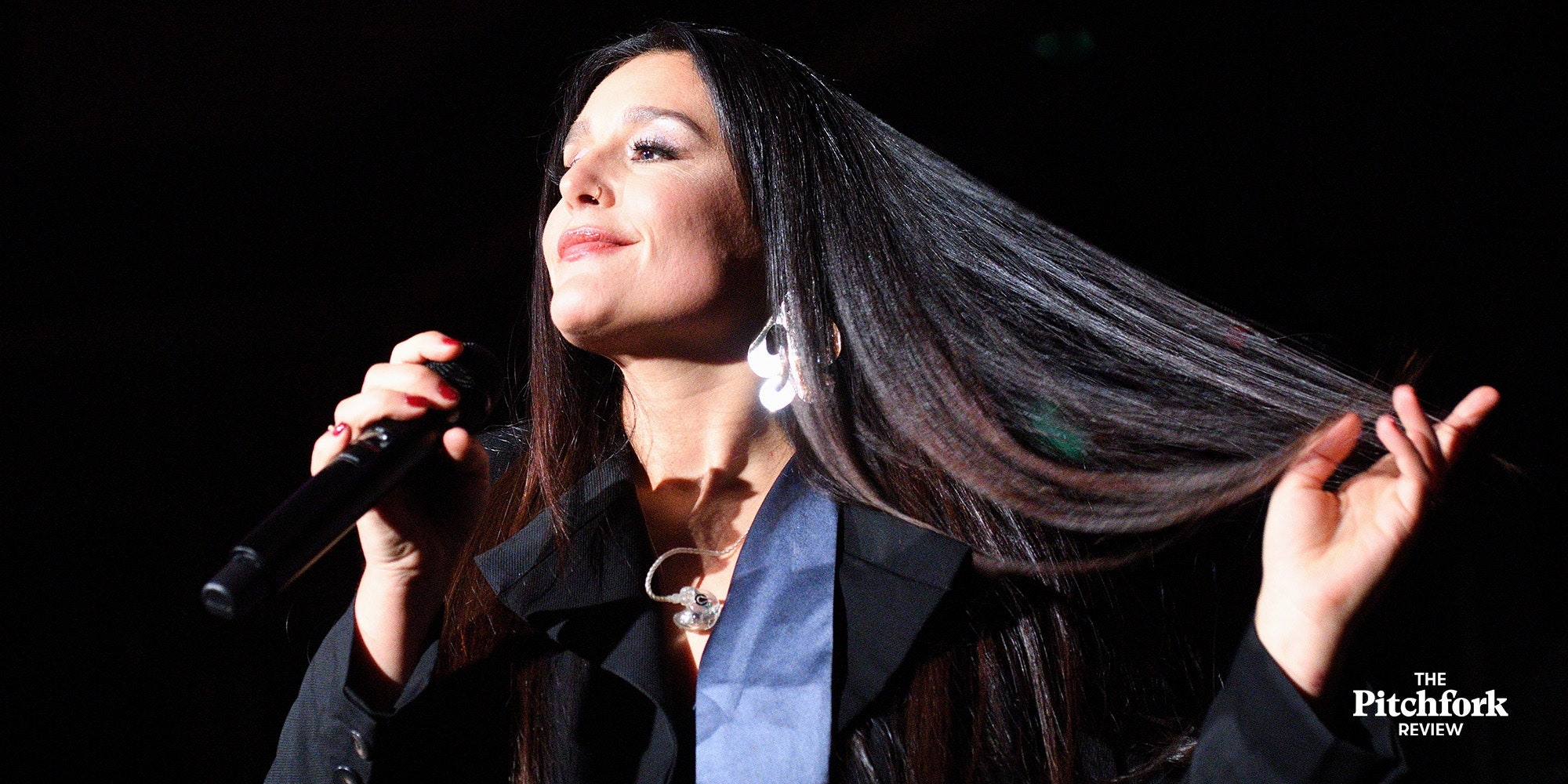Our weekly podcast includes in-depth analysis of the music we find extraordinary, exciting, and just plain terrible. This week, Reviews Director Jeremy D. Larson hosts Contributing Editor Julianne Escobedo Shepherd to discuss powerhouse pop singer Jessie Ware’s unique path through the music industry over the last decade—from potential “next Adele” to liberated dancefloor queen—and why her disco-indebted new album That! Feels Good! deserves to be mentioned in the same breath as Beyoncé’s Renaissance.
Listen to this week’s episode below, and follow The Pitchfork Review here. You can also check out an excerpt of the podcast’s transcript below.
Jeremy D. Larson: Where does Jessie Ware slot into this era’s disco revival?
Julianne Escobedo Shepherd: It’s interesting because we have Dua Lipa, whose version of the disco revival could be played on 50 different types of pop radio. Then you have Lizzo, who is pretty loyal to the disco sound but is talking about very contemporary concerns. I would put Jessie Ware sort of in the same lane as Beyoncé, where she has this really strong respect for, and fealty to, the genre. Is that wild to say? [laughs]
Larson: No, I don’t think so. I also think what this album is focused on a lot is liberation—both in your body and in your spirit, when you’re alone or when you’re out at the club—and that’s what Beyoncé talked about a lot on Renaissance too. Like the second track on That! Feels Good!, “Free Yourself,” is pretty much a prototypical “find freedom under the mirrorball” song.
Shepherd: Yeah. In the ’70s, there were queer anthems that were specific queer anthems, and then there were queer anthems that became queer anthems because of the feeling that they conveyed. And I think this album falls in the latter category. It’s ripe for becoming—like, this is going to be played everywhere at Pride this year. There are lots of songs on here that I really want to see drag queens perform.
Larson: Which song would you want to see most?
Shepherd: “Beautiful People.” It starts out chanting, and her first line is, “I wake up in the morning and I ask myself, ‘What am I doing on this planet?’ God damn! God damn!’” [laughs] And it’s like, I mean: same, girl. What am I freakin’ doing on this planet? And as quickly as she says that, it’s almost like she brushes it off and is like, Fuck it, I’m going to go buy a purple leather jacket, and we’re going to party our sorrows away. And the whole point of it is that beautiful people are everywhere.
Listening to this album, I cannot divorce it from the specific political context that we’re having in the United States, where drag queens are being banned in multiple states, which is bonkers—and also, I would posit, a First Amendment violation. And then, obviously, there’s the push in this country to legislate trans people out of existence. So this is the type of album that acts as a salve. I wrote as much about Renaissance as well, where it’s like: When everyone’s coming for you, sometimes the best thing you can do is go to the club and dance and sweat and be free with your people.








